Assange is free: what he’s given us
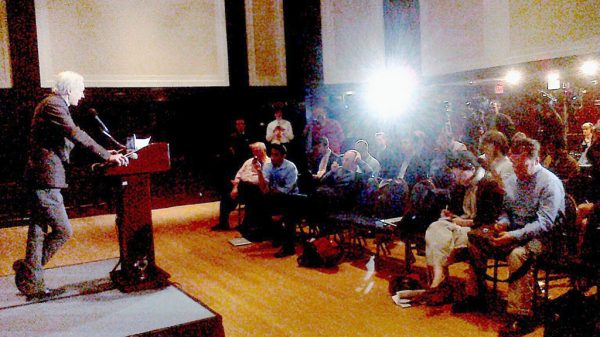
Contrary to US government claims, WikiLeaks’ revelations actually saved lives — and drove demand for accountability from Washington, writes Marjorie Cohn
AFTER a 14-year struggle, including five years spent in Belmarsh, a maximum-security prison in London, WikiLeaks publisher Julian Assange is finally free. Under the terms of a plea deal with the U.S. Department of Justice, Assange pled guilty to one count of conspiracy to obtain documents, writings and notes connected with the national defense under the Espionage Act.
Assange was facing 175 years in prison for 18 charges in the indictment filed by the Trump administration and pursued by the Biden administration.
The Justice Department agreed to the plea bargain a little over a month after the High Court of England and Wales ruled that Assange would be allowed to appeal an extradition order. The High Court found the US government didn’t provide satisfactory assurances that Assange could rely on a first amendment defence if extradited and tried in the US.
The justice department, now fearful it would lose the case, scrambled to strike a deal with Assange.
The plea agreement requires that before entering his plea, Assange must have done everything he could to either return or destroy ‘any such unpublished information in his possession, custody, or control, or that of WikiLeaks or any affiliate of WikiLeaks.’
As stipulated in the plea deal, Ramona Manglona, US chief judge of the district court for the Northern Mariana Islands, sentenced Assange to 62 months with credit for the time he served in Belmarsh Prison. The US sentencing guidelines say the range for this ‘offence’ is 41-51 months, so Assange served 11-to-21 months longer than this type of case would typically garner.
Assange was prosecuted because WikiLeaks exposed US war crimes in Iraq, Afghanistan and Guantánamo Bay. In 201[0, US army intelligence analyst Chelsea Manning, who had a ‘TOP SECRET’ US security clearance, furnished WikiLeaks with 700,000 documents and reports, many of which were classified ‘SECRET.’
These documents included the ‘Iraq War Logs’, 400,000 field reports documenting 15,000 unreported deaths of Iraqi civilians, as well as systematic rape, torture and murder after US forces transferred detainees to a notorious Iraqi torture squad.
They also contained the ‘Afghan War Diary’, comprising 90,000 reports that documented more civilian casualties by coalition forces than the US military had reported. And they included the ‘Guantánamo Files’ — 779 secret reports containing evidence that 150 innocent people had been held at Guantánamo Bay for years.
The reports explain how the nearly 800 men and boys there had been tortured and abused, which violated the Geneva Conventions and the Convention Against Torture and Other Cruel, Inhuman or Degrading Treatment or Punishment.
Manning also provided WikiLeaks with the infamous 2007 ‘Collateral Murder’ video, which depicts a US Army Apache attack helicopter crew targeting and killing 12 unarmed civilians in Baghdad, including two Reuters journalists, as well as a man who came to rescue the wounded.
Two children were injured in the attack. A US army tank drove over one of the bodies, severing it in two. In a conversation after the attack, one pilot said, ‘Look at those dead bastards’, and the other responded, ‘Nice.’ The video reveals evidence of three violations of the Geneva Conventions and the US army field manual.
WikiLeaks provided material for news outlets around the world to report on US-led atrocities. Informing the public about the illegality of George W Bush’s ‘war on terror’ resulted in calls for accountability.
‘10 years on, the War Logs remain the only source of information regarding many thousands of violent civilian deaths in Iraq between 2004 and 2009,’ John Sloboda, co-founder of Iraq Body Count, wrote in his submitted testimony for Assange’s extradition hearing in October 2020. IBC is an independent NGO that has done the only comprehensive monitoring of credibly reported casualties in Iraq since Bush’s 2003 invasion.
‘WikiLeaks cables have contributed to court findings that US drone strikes are criminal offences and that criminal proceedings should be initiated against senior US officials involved in such strikes’, Clive Stafford Smith, co-founder of Reprieve and attorney for seven Guantánamo detainees, wrote in his submitted testimony.
‘They took a hero [Assange] and turned him into a criminal’, Vahid Razavi, founder of Ethics in Tech, told Common Dreams. ‘Meanwhile, all of the war criminals in the files exposed by WikiLeaks via Chelsea Manning are free and never faced any punishment or even their day in court.’
Iraq war logs
THE Iraq War Logs contained extensive evidence of US war crimes. Several reports of detainee abuse were supported by medical evidence. Prisoners were blindfolded, shackled and hung by their ankles or wrists. They were subjected to punching, whipping, kicking, electrocution, electric drills and cutting off fingers or burning with acid. Six reports document the apparent deaths of detainees.
Secret US army field reports revealed that US authorities refused to investigate hundreds of reports of murder, torture, rape and abuse by Iraqi soldiers and police. The coalition had a formal policy of ignoring these allegations, marking them ‘no investigation is necessary.’
Although US and UK officials maintained that no official records of civilian casualties existed, the logs document 66,081 noncombatant deaths out of 109,000 fatalities from 2004-2009.
The log describes video footage of Iraqi army officers executing a prisoner in Tal Afar. It says, ‘The footage shows approximately 12 Iraqi army [IA] soldiers. Ten IA soldiers were talking to one another while two soldiers held the detainee. The detainee had his hands bound… The footage shows the IA soldiers moving the detainee into the street, pushing him to the ground, punching him and shooting him.’
Afghan war diary
THE Afghan War Diary also revealed evidence of US war crimes from 2004–2009. The reports describe how a secret ‘black’ unit composed of special operations forces hunted down accused Taliban leaders for ‘kill or capture’ without trial. Secret commando units — classified groups of navy and army special operatives — used a ‘capture/kill list’, which resulted in the killing of civilians, angering the Afghan people.
Moreover, the CIA expanded paramilitary operations in Afghanistan, carrying out ambushes, ordering airstrikes and conducting night raids. The CIA financed the Afghan spy agency, operating it like a subsidiary.
A 2007 meeting between Afghan district officials and US civil affairs officers was documented in the reports. Afghan officials are quoted as saying, ‘The people of Afghanistan keep loosing [sic] their trust in the government because of the high amount of corrupted government officials. The general view of the Afghans is that the current government is worst [sic] than the Taliban.’
The logs recorded numerous civilian casualties from airstrikes, shootings on the road, in villages and at checkpoints; many were caught in the cross fire. The victims weren’t suicide bombers or insurgents. Several deaths were not reported to the public.
Guantánamo files
THE Guantánamo Files say that only 220 of the 780 people held at the prison camp since 2002 were classified as ‘dangerous international terrorists.’ Of the rest of the detainees, 380 were classified as low-level foot soldiers and 150 were considered innocent Afghan or Pakistani civilians or farmers.
Many detainees were held at Guantánamo for years based on paltry evidence or confessions extracted by torture and abuse. Among the detainees, for example, were an 89-year-old Afghan villager with senile dementia and a 14-year-old boy who was the innocent victim of a kidnapping.
The files document a system aimed more at extracting intelligence than detaining dangerous terrorists. One man was transferred to Guantánamo because he was a mullah with special knowledge of the Taliban. A taxi driver was sent to the prison camp because he had general knowledge of certain areas in Afghanistan. An Al Jazeera journalist was held at Guantánamo for six years to be interrogated about the news network.
Nearly 100 detainees were classified with depressive or psychotic disorders. Several joined hunger strikes to protest their indefinite detention or attempted suicide, the files revealed.
No one harmed by WikiLeaks’ revelations
ALTHOUGH the US government alleged that WikiLeaks’ publication of information had caused ‘great harm’, they ‘admitted there was not a single person anywhere that they could produce that was harmed by these publications’, Assange’s attorney Barry Pollack said at a June 26 press conference in Australia.
The plea agreement says, ‘Some of these raw classified documents were publicly disclosed without removing or redacting all of the personally identifiable information relating to certain individuals who shared sensitive information about their own governments and activities in their countries with the US government in confidence.’
The US government claims that Assange endangered US informants who were named in the published documents. But John Goetz, an investigative reporter who worked for Germany’s Der Spiegel, testified at the 2020 extradition hearing that Assange went to great lengths to ensure that the names of informants in Iraq and Afghanistan were redacted.
Goetz said that WikiLeaks underwent a ‘very rigorous redaction process’ and Assange repeatedly reminded his media partners to use encryption. Indeed, Goetz said, Assange tried to stop Der Freitag from publishing material that could result in the release of unredacted information.
Moreover, WikiLeaks’ revelations actually saved lives. After WikiLeaks published evidence of Iraqi torture centers established by the US, the Iraqi government refused then-ppresident Barack Obama’s request to grant immunity to US soldiers who committed criminal and civil offenses there. As a result, Obama had to withdraw US troops from Iraq.
Obama took credit for ending US military involvement in Iraq. But he had tried for months to extend it beyond the December 31, 2011, deadline his predecessor negotiated with the Iraqi government. Negotiations broke down when Iraq refused to grant criminal and civil immunity to US troops.
What Assange’s plea bargain means for free speech
BEFORE she accepted Assange’s guilty plea, Judge Manglona asked him what he did to violate the law. ‘Working as a journalist, I encouraged my source to provide information that was said to be classified’, Assange said. ‘I believed the First Amendment protected that activity, but I accept that it was a violation of the espionage statute.’ Assange then added, ‘The First Amendment was in contradiction with the Espionage Act, but I accept that it would be difficult to win such a case given all these circumstances.’
Even though Assange will go free, his plea deal raises concerns for the first amendment advocates in the US.
‘The United States has now, for the first time in the more than 100-year history of the Espionage Act, obtained an Espionage Act conviction for basic journalistic acts’, David Greene, head of civil liberties at the Electronic Frontier Foundation, told the New York Times. ‘These charges should never have been brought.’
Charlie Savage, who has covered the Assange case extensively for years, warned that Assange’s plea sets a ‘new precedent’ that ‘will send a threatening message to national security journalists, who may be chilled in how aggressively they do their jobs because they will see a greater risk of prosecution.’
But, Savage noted, since Assange pled guilty and didn’t mount a constitutional challenge to the Espionage Act, that eliminated the risk that the US Supreme Court would ultimately sanction a narrow interpretation of First Amendment press freedoms.
‘WikiLeaks published groundbreaking stories of government corruption and human rights abuses, holding the powerful accountable for their actions’, WikiLeaks said in a statement announcing the plea agreement. ‘As editor-in-chief, Julian paid severely for these principles, and for the people’s right to know. As he returns to Australia, we thank all who stood by us, fought for us, and remained utterly committed in the fight for his freedom.’
There is no doubt that but for the sustained activism of people around the world and the work of his superb legal team, Julian Assange would still be languishing behind bars for revealing evidence of US war crimes.
Consortiumnews.com, July 2. Marjorie Cohn is professor emerita at Thomas Jefferson School of Law, dean of the People’s Academy of International Law and past president of the National Lawyers Guild.


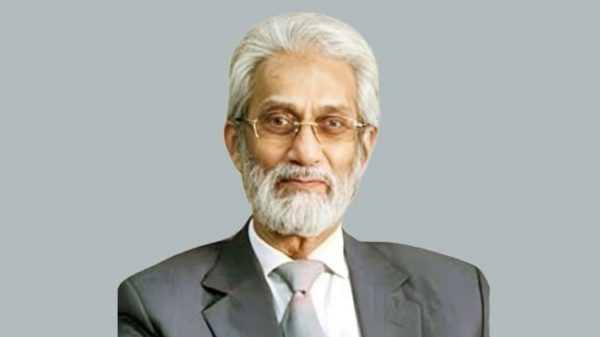
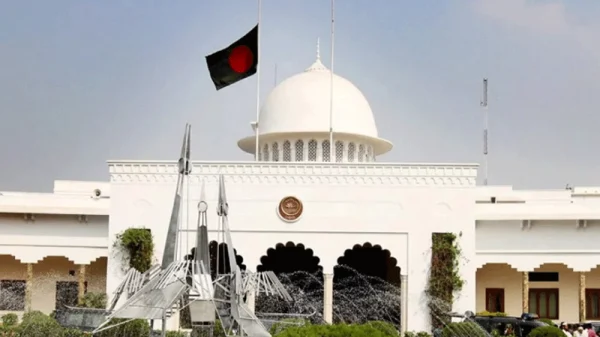

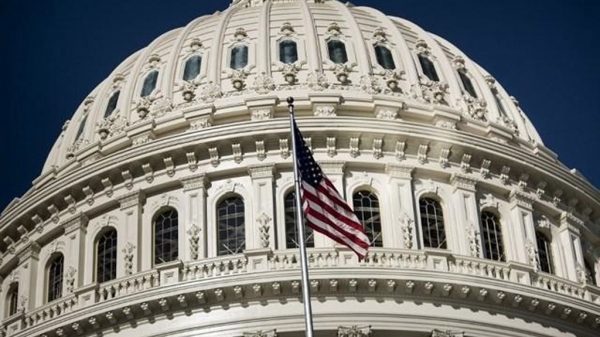
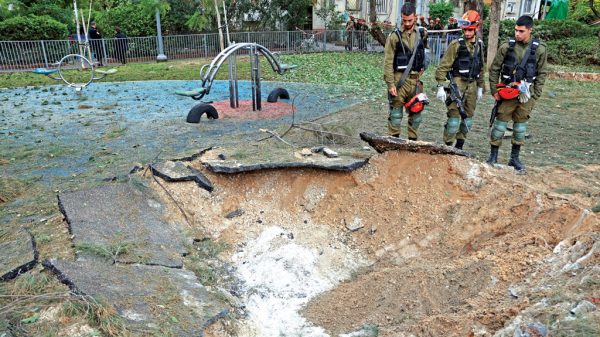
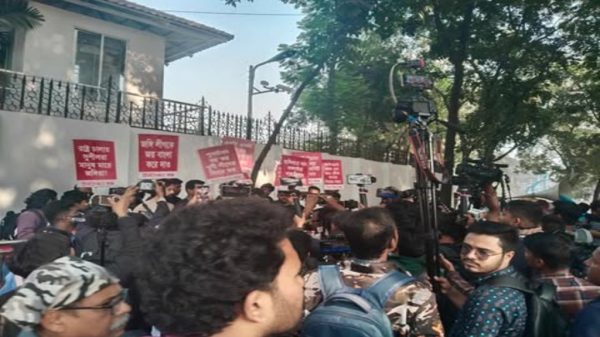

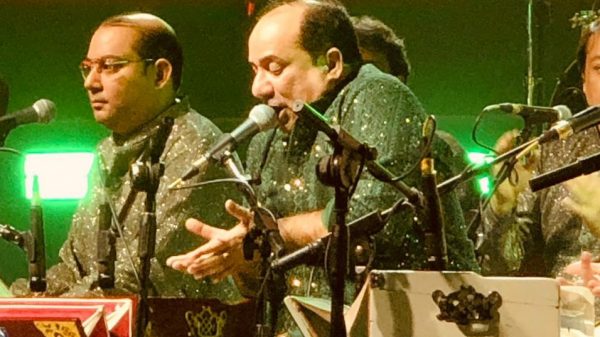













Leave a Reply